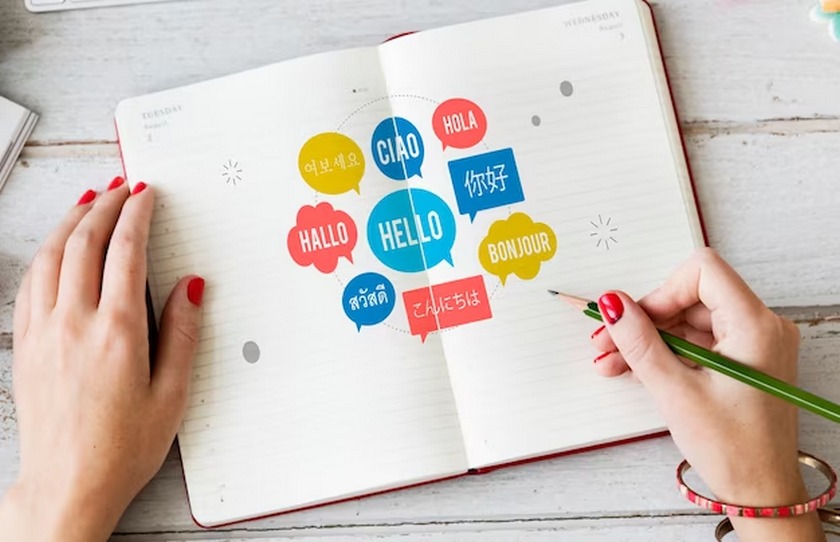How to Overcome Language Barriers While Traveling
Many individuals embark on journeys without being deterred by their limited knowledge of foreign languages. Some may feel uneasy and want to gain confidence in unfamiliar surroundings, especially when traveling solo. However, tourists often face various anxieties, such as getting lost, misplaced luggage, or issues when renting accommodations. Making purchases or ordering food at cafes can feel daunting, particularly when language barriers come into play.
Understanding Language Barriers in Travel
If you limit your travel to areas where you can be understood, your options will be quite restricted. For example, an American might struggle to comprehend a native of Glasgow, let alone decipher road signs in Asia. Recent data from the U.S. Census Bureau indicates that while the number of Americans speaking languages other than English has more than doubled in the last 30 years, it still stands at only 20%. In contrast, about 56% of residents in the European Union speak more than one language, and 28% are fluent in at least two additional languages. It’s essential to embrace the adventure of travel regardless of your language skills. Let’s explore ways to adapt and navigate these linguistic challenges.
1. Preparing for the Trip
Preparation is key when traveling abroad. Investigate the local language spoken in your destination and acquaint yourself with the culture and traditions. It can be beneficial to learn a few basic phrases, such as greetings and polite expressions for use in hotels or restaurants. If you’re heading to a tourist hub, consider learning these phrases in English, as many service workers are familiar with it. Additionally, having a pocket phrasebook can enhance your self-guided tours. Don’t forget to explore mobile phone eSIM data plans, which will provide you with continuous internet access to online phrasebooks and translation apps.
Downloading GPS maps to your smartphone or tablet ensures you won’t get lost. With access to internet connectivity via eSIM, you can also utilize online navigators. Outline your travel itinerary, including bus and train schedules, which will help you communicate effectively with drivers or locals. Make a note of key words in the local language—especially numbers and essential phrases—such as “yes,” “no,” “how much does it cost?” and “where is…?” This preparation will significantly ease your travel experience.
2. Utilizing New Technologies
Today’s travelers equipped with technology like smartphones or tablets have a significant advantage. Numerous language translation apps can convert essential words into various languages, making it easier to communicate. Having access to a data SIM card while traveling allows you to quickly and efficiently use these online resources. Don’t let language barriers deter your desire to explore the globe; instead, let travel inspire you to learn about diverse languages and cultures. Remember, non-verbal communication also plays a crucial role in overcoming language barriers:
- Sign language
- Facial expressions
- Gestures
- Visual prompts, like drawings
Additionally, carrying a business card from your hotel can instill confidence when navigating the area. Showing this to a taxi driver will ensure you reach your accommodation without difficulty. Feel free to express yourself in your language, as locals may recognize familiar words or names that guide you in the right direction.
3. Embrace the Local Culture
Learning about the local customs and traditions can endear you to residents and enhance your travel experience. Understanding the local etiquette, such as meal timings and acceptable social behaviors, shows your willingness to adapt, even if you struggle with the language. Simple gestures, such as giving a smile, can facilitate a more positive interaction with locals.
4. Role-Playing to Build Confidence
Engaging in role-playing exercises with a partner before your trip can also be beneficial. Practice scenarios such as asking for directions or inquiring about local services. Using your phrasebook or practicing vocabulary will help prepare you for real-life situations you may encounter while traveling.
5. Non-Verbal Communication
Statistics indicate that a significant portion of communication is non-verbal, which can work in your favor while traveling. Although it may be difficult to articulate specific ideas without the right words, understanding and utilizing body language can significantly enhance your ability to communicate. Personal interpretation and adaptability to non-verbal cues can empower you during your travels.
6. Stay Positive and Persistent
Even when feeling uncomfortable, making an effort to communicate in the local language is often appreciated. Most locals will value your attempts, even if mistakes are made. By stepping out of your comfort zone, you may discover that making connections is easier than it seems.
Conclusion: Embracing Language Challenges in Travel
While language skills may seem daunting, they should not prevent you from exploring new cultures. Embrace the uncertainties of travel; they can lead to wonderful experiences and personal growth. Ultimately, studying a foreign language can broaden your horizons, enhance your job prospects, and introduce you to amazing individuals. Remember, every attempt at communication brings you one step closer to fully experiencing the world.





